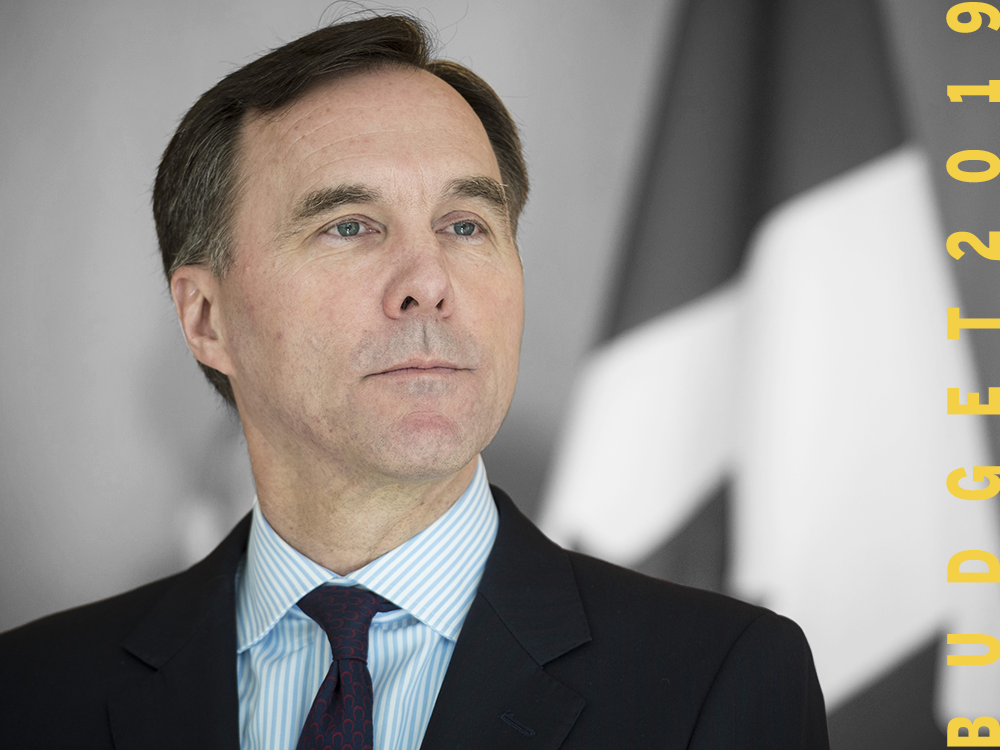Paul Martin, where have you gone?
In 2015, the deficit slayer appeared with Justin Trudeau on the campaign trail, lending instant credibility to the Liberal upstart’s economic policy.
Trudeau has repaid Martin for his support by frittering away the previous Liberal prime minister’s legacy for fiscal prudence.
Martin, as finance minister in Jean Chretien’s government, perfected the budgetary art of underpromising and overdelivering. He regularly found himself with revenue windfalls, all of which he used to erase a record deficit and reduce the debt. Frankly, the constant “surprises” got ridiculous after awhile, but the effort did have the effect of instilling confidence in Ottawa’s oversight of the economy.
Times have changed.
Bill Morneau, the former executive who has served as Trudeau’s finance minister since the Liberals unexpectedly won the last election, keeps finding himself with more money than he expected. His latest budget, released on March 19, includes additional revenue of about $30 billion through 2024, compared with October’s economic update.
Unlike Martin, Morneau’s habit is to spend the windfall — all of it — on initiatives that will play well with his party’s base. Balanced budgets, rainy day funds, and debt reduction no longer are features of the Liberal brand. From a purely economic perspective, the strategy could result in reduced poverty and narrower wealth gaps, which would have long-term societal benefits. The worry is that too little is being done to prepare for an economic downturn, but that appears to be a risk that the Trudeau government is willing to take, especially months before an election.
“The most important promise we made to Canadians is to invest in their future,” Morneau said at a press conference in Ottawa before he tabled his fourth budget. In the House of Commons, he congratulated himself for making these investments while moving the books back “towards” balance. The deficit will be about $20 billion in the fiscal year that ends a year from now, and about $10 billion in 2024, according to Morneau’s latest financial plan.
If the economy continues to roll, those deficits won’t be a problem; they amount to one per cent of gross domestic product or less, entirely manageable and low by international standards.
But there is reason to be wary about Canada’s economic prospects.
The budget assumes economic growth of about 1.8 per cent over the next five years, which is about as fast as the Bank of Canada reckons the economy can grow without causing inflation. That’s a reasonable outlook, but one that some forecasters will see as optimistic.
GDP barely grew in the fourth quarter, and the first quarter probably won’t be much better. The soft patch could be temporary, the result of an unusually large convergence of headwinds that converged over the second half of last year that have since begun to relent. The future of the North American Free Trade Agreement no longer is in doubt, for example. That should be good for investment, as executives will have one less thing to worry about.
But what if something else is going on?
Canada might already be in a recession, if only a shallow one, according to David Wolf, a former adviser at the Bank of Canada who now is a portfolio manager at Fidelity Investments in Toronto. Household debt is about 174 per cent of disposable income, a record and one the highest levels in the world. The surprise in the fourth quarter was a dramatic slowdown in consumer spending, suggesting that all that debt could finally be weighing on domestic demand.
At the same time, national home prices declined in 2018 for the first time in records that date to 1990, according to Bloomberg News. A slump could cause the value of the currency to drop to record lows of around US$0.65, creating a new headwind, according to Wolf. The country’s economy remains uncompetitive, so there is little to offset weaker household spending. “There’s a good chance that those stars are going to be misaligned,” Wolf told Bloomberg News in an interview earlier this week.
Balance-sheet recessions tend to drag. The U.S. recovery from the financial crisis was weaker than anyone expected, and Japan still is digging out from under the debt that crashed its economy in the 1990s. Indebted households and companies are unable to help with the recovery because the owe so much to their creditors.
If Canada found itself in a downturn, the federal government alone would be in a position to do something about it, according to David Dodge, the former Bank of Canada governor and the deputy minister at Finance when Martin balanced the budget in the 1990s. The biggest provinces all spent heavily to help reverse the Great Recession. None of them have the fiscal room to do so now, especially Ontario, the country’s biggest provincial economy, Dodge and Richard Dion, a former economist at the central bank, said in a pre-budget report published by Bennet Jones, the Toronto-based law firm for which both now work as advisers.
“In his spring budget, the federal minister of finance should take no spending or tax actions which would further compromise a future government’s room to take the necessary discretionary action to support growth and public investment in the event of a major economic downturn, unless these actions are aimed directly and demonstrably at enhancing productivity and investment to promote the potential growth of the economy,” Dodge and Dion wrote.
Morneau pledged incentives to ensure all of rural Canada has a broadband connection by 2030 and promised about $2 billion over five years for new training initiatives. The rest of the windfall was used on initiatives such as pharmacare and enhanced pension benefits. Nice initiatives. Let’s hope a recession doesn’t wreck them.
• Email: kcarmichael@nationalpost.com | Twitter: carmichaelkevin

